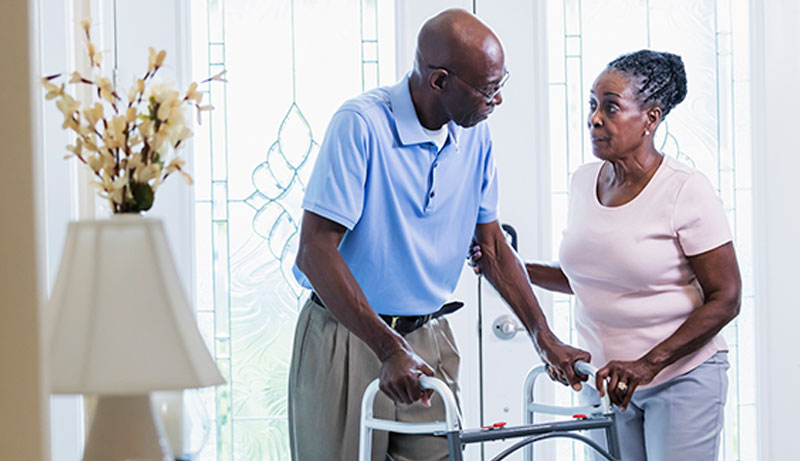
The later stages of Parkinson’s disease can bring new challenges for family caregivers.
A Parkinson’s disease diagnosis affects members of the family along with the person diagnosed. Learning about what to anticipate as the disease advances is vital to being ready for all the changes in the future and also to making life the best it can be each and every day.
Throughout the last several months we have shared information about anticipate in the early and middle stages of Parkinson’s disease. Blog posts have included information about what family members can do to best help a loved one with Parkinson’s, and how Live Free Home Health Care, experts in Belmont senior care, can help. In this closing segment in the series, we offer information about taking care of someone in the final stages of the disease.
Later Stage Parkinson’s Disease
In the late stages of Parkinson’s disease, a significant degree of assistance becomes necessary with activities of day-to-day living. By definition, the late stages of Parkinson’s are noted by the senior’s inability to reside independently. Initially, standing and walking may still be possible, however with marked difficulty, and as the condition continues to advance, the person will not be able to get out of bed or a chair unassisted.
In addition to a heightened risk for falls, hallucinations and delusions are also common. As a result, full-time, around-the-clock care is essential to ensure well-being.
The Effect of Late Stage Parkinson’s Disease on Family Caregivers
At this stage, the stress and day-to-day expectations of caregiving usually take a toll on a caregiver’s own health. It is vitally important for family care providers to reach out and accept support, to stay socially connected, and to make respite care a top priority. It is just not practical for one person alone to handle the around-the-clock care needed for a person in late stage Parkinson’s.
How Care Providers Can Help with Late Stage Parkinson’s Care
With increased hands-on care needed, it’s essential for caregivers to learn how to safely and efficiently provide this help to lower the chance of doing harm to either themselves or the person being cared for.
If the older adult is not already receiving physical therapy services, talk to the physician for a referral. The physical therapist, while helping improve the person’s ability level, may also advise family caregivers on the ideal approaches for hands-on assistance.
One new symptom that often develops in the later stages of Parkinson’s is freezing, when the person is suddenly (but temporarily) unable to move. Methods to help break a freezing episode include:
- Using a laser pointer and asking the individual to step on the light
- Using a rhythmic sound, such as clapping, and motivating the person to take a step with every clap
- Playing songs and prompting the individual to walk to the beat
Of course, it is important to remain close by when the individual is mobile to prevent a fall.
Make sure to provide an abundance of additional time for daily activities such as getting dressed and eating, which are likely to take longer now. This is important in preserving the person’s self-sufficiency. Even if it requires longer to finish a task, it’s always best to foster as much independence as you can.
Emotional and mental health issues also may develop now, including depression, memory problems, anxiety, and dementia. These ailments can be very daunting for a family care provider to manage and should be brought to the attention of a loved one’s doctor.
Live Free Home Health Care’s award-winning senior care team is here to help you and the senior you love through each stage of Parkinson’s. Especially in these final stages of the disorder, having a care partner you can trust and rely on is a must.
Call us at 603-217-0149 for a complimentary in-home assessment and for more information on our in-home Belmont senior care services. We’d be happy to provide more details on how we can ease the transitions through Parkinson’s for both you and the New Hampshire senior in your care. For a full list of communities we serve, please visit our Service Area page.
